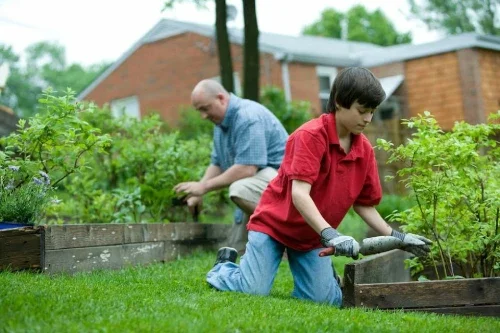Building Confidence: How Teens Can Develop Self-Esteem
Put simply, self-esteem is a term to describe when you feel good about yourself. But it’s not a superficial, temporary feeling. People with high self-esteem believe in themselves. They accept and value themselves without ignoring their flaws. Self-esteem is not about superiority, but rather, it’s a form of healthy self-confidence.
When your self-perception is out of balance, your self-esteem can take a hit. This is not uncommon during your teen years. So many factors are at play. You’re juggling a social life, academics, dating, your family, planning for your future, and possibly a part-time job. As daunting as all this seems, you can still thrive by building confidence and developing self-esteem.
What Forms Self-Esteem in a Teen’s Life?
Everyone is different, but here are some common threads:
The people in your life: Early on, parents and other caregivers play a massive role in shaping your perception of yourself. Thus, nurturing energy can bring out a positive self-image, while neglect or bullying (including from siblings) may lay the groundwork for esteem issues.
The voice in your head: The people mentioned above continue to play a role here, but at some point, it is your internal monologue that does most of the talking.
The skills you develop: When you learn new skills — including coping skills — it can cancel out some negative early programming.
A Few Ways You Can Develop Self-Esteem
Choosing Friends Wisely
Those with whom you spend the most time will affect how you feel about yourself. The goal should be to connect with folks who accept you as you are while still challenging you to improve. This energy flows in both directions, of course.
Practicing Self-Compassion
While outsiders will obviously be influential, the onus is on you to shift the balance. You can’t control the behavior of others, but you can absolutely choose to be your own best friend. Challenge your inner critic and work toward having an honest, fair sense of who you are.
Focusing on the Positive
Perfection is an illusion. Everyone makes mistakes, but that’s not the barometer of success. It’s definitely a useful way to assess someone — including yourself. In other words, set realistic expectations and standards while giving yourself permission to celebrate victories of all sizes. Acknowledge what needs to be improved, but aim your primary focus on what you’re doing right.
Setting Goals
Self-esteem is an ongoing process and somewhat of a moving target. Therefore, it is huge to get in the habit of setting short- and long-term goals. Take productive, patient steps but remain open to shifting course when it is called for. Setting goals and working toward them can be one of the most satisfying and fulfilling acts anyone can undertake. It teaches us to be resourceful and self-confident.
Be a Cheerful Giver
This might be the easiest and fastest step to building self-esteem. Every day, we are faced with opportunities to help others. Such actions help you to develop your character and establish who you are in the world. When you make a difference in the lives of others, your self-esteem naturally grows. At the same time, the people in your life will see you as a role model.
Easier Said Than Done
Your teen years are a hotbed of peer pressure. This reality can lead anyone to make self-sabotaging choices and engage in unhealthy comparisons. There’s no shame in getting caught up in such cycles, and help is just a click away. When you feel like you’re floundering, it can be the ideal time to connect with a therapist to talk about counseling for teens. Your weekly session can ground you in a place of self-awareness as you develop the confidence and self-esteem you desire.

